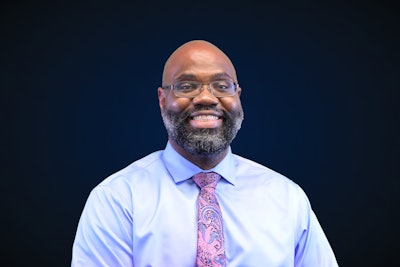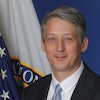Race and higher education scholars are voicing criticism, concern, and cynicism after the University of Florida ended many of its diversity, equity, and inclusion (DEI) efforts, a move that the school cited it took to comply with a state law that was passed last year. Dr. David Canton
Dr. David Canton
Specifically, UF closed its Office of the Chief Diversity Officer (CDO), removed DEI and administrative roles, and stopped DEI-focused contracts with outside vendors, according to an administrative memo UF leadership published Mar. 1.
Much of higher ed institutions’ abilities to provide opportunities to underserved populations are housed in their DEI offices, said Dr. Jeffrey Q. McCune, Jr., chair of Black studies at the University of Rochester.
"It's not just the elimination of some CDO or offices which 'promote division.' But rather, it's the elimination of opportunities to retain faculty and students [who] this country and its universities has historically never served,” McCune said. “And so, part of what we are seeing is an elimination of offices that help retain faculty that have historically not been included in the university culture. Opportunities that are being eliminated are opportunities for students for whom the culture has not been able to be inclusive and inviting.”
The 2023 state bill in question, SB 266, stipulates specifically that schools in and organizations directly supported by the Florida College System cannot use state or federal funds to “promote, support, or maintain any programs or campus activities that … advocate for diversity, equity, and inclusion, or promote or engage in political or social activism,” as defined by state education officials.
As culture wars over political and social ideology – including concepts such as DEI, critical race theory, and “wokeness” – continue to roil and come up in public discourse, officials from states like Florida and Texas have led the charge against such ideas, signing legislation to hinder their advancement or very existence.
“This is another step in a broader agenda to dismantle DEI resources that seek to address historic and systemic inequities in higher education,” said Dr. Amer F. Ahmed, vice provost for DEI at the University of Vermont. “It undermines our ability to foster the innovation, creativity, and solutions needed to confront the challenges we face in our society and world today.”
There is no data or evidence that proves that DEI initiatives promote indoctrination or that diversity leads to white people falling behind, said Dr. David Canton, director of African American Studies and associate professor of history at UF. He is also the former interim dean of institutional equity and inclusion at Connecticut College.
“There's a belief that universities are too far left and we need to bring them back to their original intent or the center,” Canton said. “When I hear that, I'm thinking the 1950s. Go look at a curriculum. Go look at the faculty and staff. We see that it wasn't as diverse.”
According to the UF memo, employees who were let go from their jobs will receive 12 weeks of pay and can apply for expedited consideration for other positions at the school until Apr. 19. And the money that UF used to report as going to its DEI practices – approximately $5 million – will now go to a faculty recruitment fund instead.
UF’s Dr. Vincent Adejumo, for one, was not surprised by the news. Given Florida Gov. Ron DeSantis’s anti-DEI attacks and the influence he has on UF trustees when it comes to funding, it was to be expected, he told Diverse. He added that part of this shift can even be attributed to the conservative leanings of UF President Dr. Ben Sasse, who was a Republican senator before becoming president of UF in 2023.
Adejumo, a senior lecturer of African American studies at UF, did point out that the CDO’s office at the university over the years has not led to much improvement when it comes to the number of African American students and faculty on campus.
A look at UF’s publicly available data shows that the number of Black or African American students at UF has decreased since 2018, the year that UF hired its first CDO, despite an increasing overall number of students. In Fall 2018, there were 3,372 Black/African American students (6.01%) in that year’s Fall cohort of 56, 079 students. Four years later in Fall 2022, there were 3,347 Black/African American students (5.51%) in a Fall cohort of 60,795 students.
“Obviously, we still don't want it to go. We feel that it works in our favor, as far as our comfort and making sure we're included and belong on campus,” Adejumo said. “I have mixed feelings about it. I hate for good people to lose their jobs and their positions. And I hate that there's not another department or unit on campus to advocate for diversity in general.”
Dr. Charles H.F. Davis III, an assistant professor in the Center for the Study of Higher and Postsecondary Education at the University of Michigan, criticized UF’s leadership’s decision to put the money into faculty retirement funds, arguing that doing so would lead to the disproportionate benefit of UF’s majority-white faculty. He called the decision to remove DEI roles at UF another win for white supremacy.
“You're defining DEI in some way as this sort-of disproportionate benefit on account of race, religion, and other aspects of identity, and you're reallocating now $5 million to a faculty retirement fund,” Davis said. “When we look at college faculty generally – and even at the University of Florida particularly – it is overwhelmingly white. Those faculty who have retirement plans is probably even exponentially more white.”
Though UF cited the state law as the reason for this elimination of DEI roles, Adejumo and Davis expressed doubt about how hard the school’s leadership even fought back.
“I think we need to be more critical about the roles of higher education institutions as political entities and actors. When they are in need of certain resources and support, they have no problem using and leveraging the lobbying apparatus in order to get those resources,” Davis said.
Following this move from UF, DeSantis said on social media that DEI was “toxic” and had “no place” at public universities, a sentiment that AAC&U President Dr. Lynn Pasquerella denounced. She warned that UF’s decision will disadvantage everyone from veterans and students with disabilities to minoritized students.
“Active, intentional, ongoing engagement with difference as a means of fostering humanistic identification and empathetic understanding is core to a liberal education and our nation's historic mission of educating for democracy,” she said in an email to Diverse. “Florida's restrictions on DEI greatly impede the ability of colleges and universities to advance their missions by creating educational environments and experiences that produce the learning outcomes faculty seek and employers value.”
How this change affects student enrollment and faculty recruitment remains yet to be seen for at least a couple years from now. But even if DEI as a term may not be around at UF following this move, discussions on how to support low-income, first-generation students and bolster diversity will continue, Canton said.
“There's an assumption that this work may continue, whether it's through programs, departments,” Canton said. “These discussions are not going to stop. You're going to have these discussions in the classroom. You're going to have these discussions among students and faculty.”


















